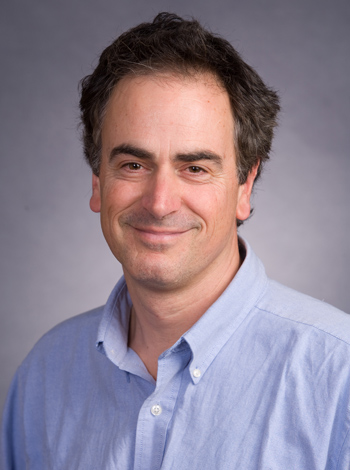Julian Schroeder Elected President of American Society of Plant Biologists
October 23, 2014
By Kim McDonald
Julian Schroeder, a distinguished professor of biology and co-director of UC San Diego Center for Food and Fuel for the 21st Century, has been elected president of the American Society of Plant Biologists, a professional society of over 4,000 members devoted to the advancement of the plant sciences. He began his one-year term of service on October 1.

Schroeder, who holds the Novartis chair in plant sciences and is director of the Plant Systems Biology Graduate Training program, received the Charles Albert Shull Award from ASPB, a Presidential Young Investigator Award from the National Science Foundation, the Deutsche Forshungsgemeinshaft Heinz-Maier-Leibnitz Research Priz, and the Blasker Award in Environmental Science and Engineering. He is also a fellow of the American Association for the Advancement of Science.
He has been a faculty member in the Division of Biological Sciences since 1990 and pioneered the characterization of ion channels in higher plants. His laboratory later turned its research focus toward identifying the basic molecular mechanisms by which plants respond to and mount resistance to abiotic stresses. The abiotic stress mechanisms that he and colleagues are characterizing are directly linked to water, including drought stress–induced signal transduction mechanisms, salinity resistance mechanisms and how plants respond to the continuing rise in the atmospheric carbon dioxide concentrations. Understanding the basic mechanisms of these abiotic stress responses is also relevant to the availability of arable land to meet the food and energy needs of the growing human population.
Schroeder pursued his undergraduate studies in physics at the University of Göttingen and completed his MS and PhD in biophysics and physics at the Max Planck Institute for Biophysical Chemistry in Göttingen as the first graduate student of Nobel laureate Erwin Neher, in conjunction with the University of Göttingen. He pursued a postdoctoral fellowship at the University of California, Los Angeles, with Susumu Hagiwara, who co-discovered calcium channels in animal systems.
